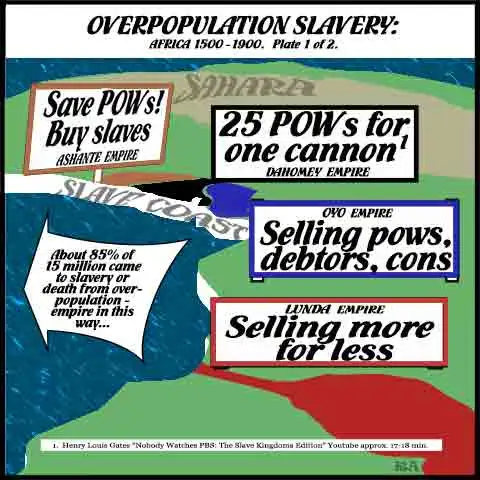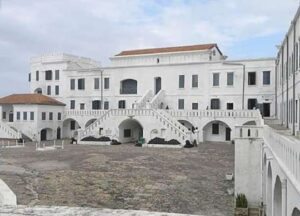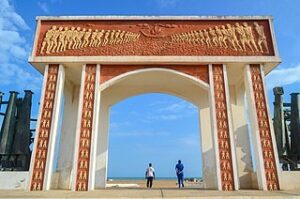
↓
Overpopulation enables, motivates, & sparks the start of slavery.
In the paradise of underpopulation affluence nobody needs slavery. So why does slavery re-appear repeatedly throughout human history?
Is it possible that as human numbers outrun life support, “we” want life-support resources that are already keeping “others” alive? That as numbers outrun life support our fearful, overpopulation-selected “us” versus “them” passions trigger unrest, violence, and war? That war leads to capture of prisoners of war (POWs) who, like other of societies’ convicts and chronically poor, are loathed by those struggling to escape the poverty of population pressures.
As burdens of non-contributing captives increase does overpopulation motivate slavery? Do people and leaders incline toward less fatal ways of exploiting those who otherwise face execution as enemies? Many an emperor has looked on slavery as the more merciful of the two available choices. Of course, death makes certain that the enemy POW won’t take up arms again. But slavery lets the captive live for the benefit of slavers.
Overpopulation starts slavery: convicts.
All societies label some as “criminals” for behaviors disruptive to the “us” group offended. Criminals lose their freedom. During times of underpopulation affluence criminals may have some limited “rights” in prison. In harder times societies resent resources spared for prisoner upkeep. Then, convicts are increasingly seen as low-worth overpopulation excess. Then rulers may invoke self-interested enslavement as more merciful than death.
Overpopulation starts slavery: prisoners of war (POWS).
Again as societies compete, armies organize to take what “we” need from “others.” Prisoners are captured. Overpopulation poverty resents captives and support leaders finding ways to make prisoners more productive?

One of Africa’s many slave warehouse-prisons
Overpopulation starts slavery: the chronically poor.
In much the same way, chronic poor explode in numbers as humans overpopulate available land, resources, and jobs. Dominant “us” groups increasingly loath the chronically poor as a drag on their own lives. All this sets the stage for some exploitive slaver to dream up forced productivity from the chronically poor. Again slavery is sold as a “merciful” choice where starvation of the poor can be avoided.
Overpopulation starts slavery again and again throughout history.
Can we do better than to borrow heavily from the excellent Slavery and Social Death, A Comparative Study by Harvard’s Orlando Patterson? “There is no region on earth that has not at some time harbored the institution. Probably there is no group of people whose ancestors were not at one time slaves or slaveholders.” Orlando Patterson Slavery and Social Death, a Comparative Study (Cambridge, MA; London, England: Harvard University Press, 1982) at vii.

Gates of No Return at Ouidah.

Gates of No Return at Ouidah.
Among Classical Greeks from the sixth century BCE, “the agent of the state responsible for the public regulation of slaves was the war archon.” Patterson at p. 40, note 18. Of course, a military provider of captives!
“In many societies slavery rose by convicts and/or the chronically poor.
“In France, Spain, England, and the Netherlands a severe form of enslavement of Europeans by Europeans was to develop and flourish from the middle of the fifteenth century to well into the nineteenth. This was penal slavery, beginning with galley slavery and continuing with its replacement by the Bagnes, or penal slavery in public works. Both were slavery in every sense of the term. They developed as substitutes for the death penalty at a time when there was not a prison system in Europe to accommodate the huge number of persons found guilty of capital offenses.” Ibid. p. 45, note 43.
Patterson’s powerful analysis flowed from many cultures in which slavery became a dominant institution.
“Slavery was not only ubiquitous but turns out to have thrived most in precisely those areas and periods of the world where our conventional wisdom would lead us to expect it least. It was firmly established in all the great early centers of human civilization and, far from declining, actually increased in significance with the growth of all the epochs and cultures that modern Western peoples consider watersheds in their historical development. Ancient Greece and Rome were not simply slaveholding societies…slavery was very solidly the base of their socioeconomic structures.” Ibid. at vii.
Why? Because humans’ overpopulating nature — like other momentarily-successful animals — eventually out – conceives their life support. Darwin saw that “[M]ore individuals of each species are born than can possibly survive…” So, “there is a frequently recurring struggle for existence.” Survival-enhancing characteristics have a greater likelihood of being “naturally selected” in those struggles. Charles Darwin The Origin of Species (London: John Murray Publishing, 1859), p. 5.
Prisoners of war, convicts, and the chronically poor hold back their communities in ways that become seen as impossible as numbers outrun life support. Pressures of “too many,” intense overpopulation, sets the stage for slavery. Someone says, “I think I can make our socially-dead captives contribute on my farm, mine, factory, or religion-business. Let me try. If slavery works, then, mercifully, these people may live! If some fail, they were going to be executed anyway.”
Slavery typically re-emerges during periods of overpopulation stress. What begins as the lot of the convict, the POW, and those labelled as chronically incapable, may spread to others as institutionalization sets in.
Footnotes:

0 Comments